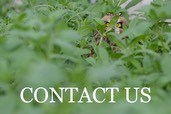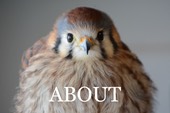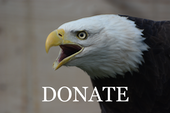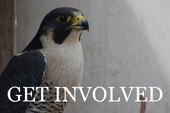Cutest Bird of the Week: Baby Common Merganser

This ball of fluff weighs 44 grams, just over 1 1/2 ounces. It was found wandering through the woods near Lostine, OR. The rest of its family was no where to be found, so it hitched a ride to Pendleton. Mergansers are diving ducks, eating fish and aquatic invertebrates. They nest in tree cavities.
Red-tailed Hawk 17-253
RTHA 17-253 was found face down on the ground in a pasture. An exam revealed a large bruise on the left side of his neck and a swollen right shoulder. The cause appears to have been collision with a power line. The hawk could not raise his head and needed assistance to stand.

Intern Julia helped fashion a neck brace to slightly extend the hawk’s neck and help immobilize his head. (Julia is a pre-vet student from New Jersey and is using all her spare time to complete applications to vet school.)
Wildlife veterinarian Dr. Jeff Cooney helped clarify what we saw on the radiographs. In the view below, the arrow labeled A indicates soft tissue swelling. The arrow labeled B shows the increased disc space between two vertebra indicating a dislocation.

The arrow in the lateral view below points to a displaced vertebra which probably is putting pressure on the spinal cord. We are going to explore the possibility of having a chiropractor manipulate the hawks spine to realign the vertebra.

Peregrine Falcon 17-251

A male Peregrine Falcon was found near Enterprise, OR unable to fly. An exam and radiograph showed the metacarpals in his left wing are fractured. His wing has been immobilized, but he is quite determined to remove the bandage.

Bald Eagle 17-257
A Bald Eagle nest near Prosser, WA ended up on the ground along with the eaglet who was in the nest. Initially it appeared the eaglet may have a problem with her left wing. BMW volunteer Cliff captured her and facilitated her transport to Pendleton. An exam and radiographs found no significant injuries. She is no doubt sore from her ordeal, but we will plan on returning her to her parents who have obviously been keeping her well fed. Hopefully the parents will be more selective in the food they provide. The eaglet already has a blood lead level of 7.7 micrograms/dl.

Below is the upside down nest.








